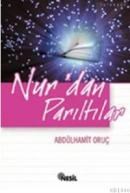PRIENE A GUIDE TO THE (ISBN: 9789758070169)
En Ucuz : 24,
En Pahalı 24,
Toplam 1 Satıcı
Priene, situated on the northern edge of the Meander Plain, is, for a number of reasons, of special importance among Ionia´s grand sites of ancient ruins. Situated on the southern slope of Mt. Mycale, below the impressive Acropolis rock, Priene is an outstanding example of a city dating to the transitional period from late classical times to Hellenistic, and laid out under strict observance of a geometrical plan. The extraordinary state of preservation of Priene´s ruins induced the Museums of Berlin to carry out their first important excavations here between 1895 and 1899. The special attractiveness of the site, which Theodor Wiegand, not without justification, called the \"Pompeii of Asia Minor\", seems to haunt an ever increasing number of visitors.
This guide through the ruins of Priene is meant to replace Martin Schede´s booklet of 1934, \"Die Ruinen von Priene\". Martin Schede´s guide was so successful that it was reprinted in 1964, \"revised and improved by G. Kleiner and W. Weiss\". As this reprint and also R. Duyuran´s guide of 1948, \"Priene Kilavuzu\", have been sold out long ago, and as, meanwhile, research work in and around Priene has been going on, it seemed imperative to present a new guide. This guide also includes the results that have been obtained since Wolfgang Muller-Wiener took up new studies of the site in 1977. This work, carried out on behalf of the Istanbul Section of the German Archaeological Institute, was headed by Wolfgang Muller-Wiener and is now being continued under the guidance of WolfKoenigs.
This guide through the ruins of Priene is meant to replace Martin Schede´s booklet of 1934, \"Die Ruinen von Priene\". Martin Schede´s guide was so successful that it was reprinted in 1964, \"revised and improved by G. Kleiner and W. Weiss\". As this reprint and also R. Duyuran´s guide of 1948, \"Priene Kilavuzu\", have been sold out long ago, and as, meanwhile, research work in and around Priene has been going on, it seemed imperative to present a new guide. This guide also includes the results that have been obtained since Wolfgang Muller-Wiener took up new studies of the site in 1977. This work, carried out on behalf of the Istanbul Section of the German Archaeological Institute, was headed by Wolfgang Muller-Wiener and is now being continued under the guidance of WolfKoenigs.















